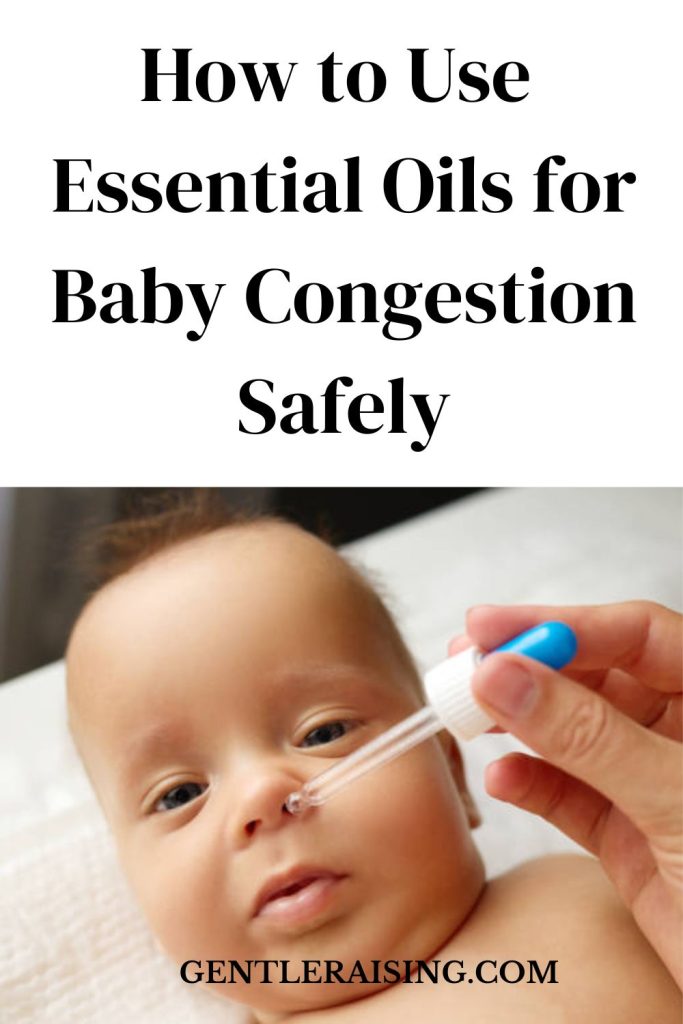You know those nights when your little one is all sniffly and congested, and it feels like there’s no magic trick to clear that tiny nose? Yeah, been there. Baby congestion can be downright tough, not just for the baby but for parents trying to get some rest, too. It’s like everyone’s in the same boat, paddling through a sea of sleepless nights and endless worry.
So, naturally, when you hear about essential oils helping with congestion, it sounds like a breath of fresh air (pun intended). But hold on a sec before you rush out to grab that bottle of eucalyptus or lavender, there are a few important things to unpack. Because, let’s face it, babies aren’t just tiny adults. Their bodies handle things very differently.
Today, we’re going to chat about essential oils for baby congestion: what’s safe, what’s not, how to use them properly, and some honest truths about this popular natural remedy.
Can You Use Essential Oils on Babies? Spoiler: It Depends.
Here’s the thing: essential oils are powerful little bottles of concentrated plant goodness. But powerful means you have to tread carefully, especially with babies.
If your baby is under three months old, most experts say don’t use essential oils at all. Their skin is ultra-sensitive, and their respiratory systems are still very fragile. Even for older babies, oils must be diluted heavily. Think of it like lemonade: too strong, and it’s a mouthful; just right, and it’s refreshing.
You’ll hear all sorts of advice floating around, but the safest bet? Check with a paediatrician first. They can guide you based on your baby’s health history and age. Because honestly, what works for one might not for another.
Also, a little rule of thumb: topical use should always be diluted with a carrier oil like fractionated coconut oil, jojoba, or almond oil. Diffusing oils can be gentler but still require caution (and a short, supervised diffusion time).
What’s Going On Inside That Little Nose Anyway?
Ever notice how a baby’s congestion seems way worse than an adult’s? That’s because babies have smaller, narrower nasal passages. Even a little swelling or mucus can make it feel like their nose is completely blocked.
Congestion happens when the membranes lining the nasal passages swell and produce extra mucus. It can be caused by:
- The common cold (the usual culprit)
- Dry indoor air, especially in winter when heaters are on
- Allergies, though less common in very young babies
- Sometimes, irritants like smoke or strong scents
The tricky part? Babies can’t blow their noses, and that means the mucus just lingers, making it harder for them to breathe and sleep. And the fussiness that comes with it? Well, that’s just the cherry on top for exhausted parents.
Oils That Might Just Be Your New Best Friend (With Caution!)
If your baby is over 3 months old and you’ve got the go-ahead from your doctor, here are some essential oils known for their gentle and helpful effects against congestion:
- Lavender: Probably the all-star when it comes to baby-safe oils. It’s calming, soothing, and even helps with mild antihistamine effects. Plus, it smells like a gentle lullaby.
- Eucalyptus Radiata: Not the more intense globulus variety (that one’s too harsh), but the radiata version can help open airways a bit. It’s less overpowering and safer for babies.
- Roman Chamomile: Like a warm hug, this oil is anti-inflammatory and can help soothe irritated nasal passages.
- Frankincense: Known for immune support, it also has gentle decongestant properties.
- Tea Tree Oil: This one’s tricky. It’s antimicrobial but can be irritating, so only use it sparingly and with professional advice.
Avoid anything with peppermint, rosemary, or cinnamon near babies; that stuff’s just too strong and can cause breathing problems.
How to Use Essential Oils Safely and Effectively
Okay, so you’ve got the oils and the green light from your doc. What next? How do you actually use these oils without accidentally turning your baby into a sneezy mess?
Diffusing is the gentlest method if done right:
- Use a cool-mist diffuser (never heat-based)
- Diffuse for short bursts about 15 to 30 minutes max
- Make sure the room is well-ventilated
- Keep the diffuser out of the baby’s direct reach
Topical application needs some TLC:
- Always dilute! For babies, a dilution rate of 0.25% to 0.5% is typical (roughly 1 drop of essential oil in 4 teaspoons of carrier oil).
- Apply gently on the chest, back, or feet (yes, feet!), the skin there absorbs oils safely.
- Avoid hands and face to prevent accidental rubbing into your eyes or mouth.
DIY Baby Chest Rub: a tried and true method for many parents:
- 1 tablespoon fractionated coconut oil
- 1 drop lavender essential oil
- 1 drop eucalyptus radiata essential oil
Mix well and rub gently on your baby’s chest and back before bedtime. It’s like a little hug that helps them breathe easier.
BigNo-Noss: What to Avoid at All Costs
Here’s where you need to be super careful:
- Never put undiluted essential oils directly on a baby’s skin. That can cause burns or irritation.
- Avoid applying oils near the nose or eyes; babies will instinctively rub, and it’s painful and dangerous.
- Skip peppermint, rosemary, cinnamon, and other “hot” oils altogether. They can cause breathing troubles or even seizures in infants.
- Don’t rely solely on essential oils for serious congestion; sometimes, medical care is necessary.
Remember, “natural” doesn’t always mean “safe.” Some of the most potent plant oils can be harmful if misused.
When the Going Gets Tough: Mom Hacks for Baby Congestion
Being a parent of a congested baby? You’re basically a sleep-deprived superhero. Here are a few real-world tips that go hand-in-hand with essential oils or work on their own:
- Humidifiers: A cool-mist humidifier in your baby’s room can add moisture to the air and ease congestion. Just clean regularly, no one wants a mouldy mist!
- Elevate the crib head slightly: Not too much, just a gentle incline can help mucus drain better.
- Saline drops and suction: Not the most glamorous tools, but those saline nose drops followed by a bulb syringe or nasal aspirator really work wonders.
- Skin-to-skin contact: You’d be surprised how cuddling your baby close can calm their nervous system and ease discomfort. Plus, it’s a win-win for bonding.
- Warm baths: A steamy bath can open up those airways, and the warm water is soothing all around.
When Congestion Means More Than Just a Cold
Sometimes congestion sticks around or comes with other symptoms that need a doctor’s attention. If you see:
- Wheezing or noisy breathing
- High fever lasting more than a couple of days
- Blue or pale lips or face
- Difficulty feeding or lethargy
Don’t hesitate, get medical advice. Trust your instincts here; no one knows your baby better than you do.
Wrapping It Up: Essential Oils Are Just One Piece of the Puzzle
At the end of the day, essential oils can be a gentle helper when used wisely and safely. But they’re not magic potions, and they shouldn’t replace the basics, good hygiene, hydration, and proper medical care.
You’re doing an amazing job navigating this whole parenthood thing, congestion battles and all. Sometimes, just being calm and present for your baby does more than any remedy ever could.
So go ahead, breathe easy (once your baby does), and know you’ve got this.

